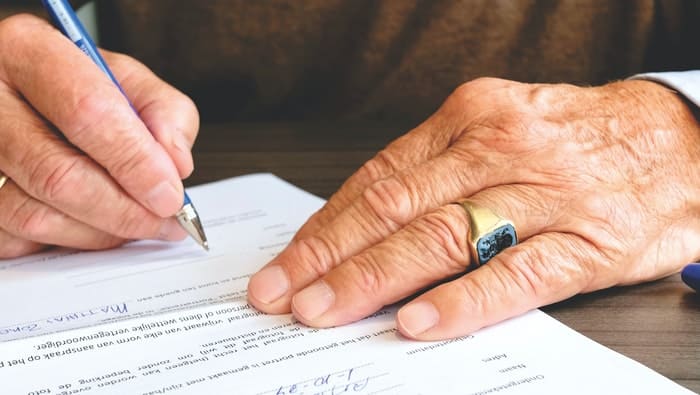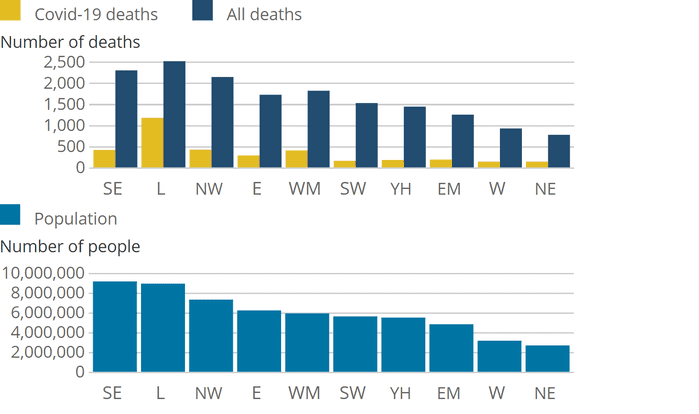

Registering a Death
How to register a death
When a loved one passes away, you need to ensure their death is registered as soon as possible. The timeframe to do this is restricted to 5 days in England, Wales and Northern Ireland and 8 days in Scotland. This includes weekends and bank holidays and can be delayed a further 9 days if a medical certificate is issued. All deaths need to be formally registered with the registrar of Births, Deaths and Marriages. You can find your local register office by visiting www.gov.uk/register-offices.
If your family member dies at home then you will need to register the death at the district registry office. If they pass away in a nursing home or hospital, then you need to register the death where they are situated. Many registry offices will pass the details onto the correct office for you if you are unable to travel there. It’s important to note that if a coroner is investigating the death, you cannot register the death until this has been concluded.

What do I need to register a death?
Registering a death usually takes place prior to the funeral. Most registry offices operate an appointment system so you may need to book an appointment to register the death. You will need to take the certificate of death with you, as the registrar cannot record the death without it. If available, you will also need to take their birth and marriage certificate and their NHS medical card.
The registrar will also require the following information about the deceased;
- Deceased’s full name including any previous names
- Their full address including postal code
- Details of surviving partner
- Date of birth and date of death
- Place of birth and place of death
- Their occupation
- Details of government pensions or benefits
If you are able to, you should also bring any of the following documents with you. Whilst these documents are not essential, this will further assist the registrar in registering the death;
- Passport
- Driving licence
- Proof of address
- Council tax bill
- Utility bill
- National Insurance number of deceased
- National Insurance number of surviving partner of the deceased
Who can register a death?
The following people are able to register the death;
- Immediate family or a relative
- The deceased’s executor or legal representative
- A relative who was present during the last illness
- A relative or anyone who was present at the death
- The person arranging the funeral but not the funeral director
- A hospital official
- The person finding the body
- Occupier/ owner of the building where the death took place (if they were aware of the death)

What happens after I have registered a death?
Once you have registered a death you will be issued with two certificates. These certificates are as follows;
A Certificate for Burial or Cremation, otherwise known as the ‘green form’. This allows you to apply for a cremation and gives permission for a burial to take place. You will need to give this form to the funeral director.
A Certificate of Registration of Death, otherwise known as a BD8 form. This form allows you to notify the state office of the death so they can adjust pension payments or benefits. You will not need to complete this form if you use the Governments ‘Tell Us Once’ service. This form comes with a self-addressed and prepaid envelope.
What is the ‘Tell Us Once’ service?
"The ‘Tell Us Once’ service is a governmental aid that allows you to report a death to numerous organisations at once." A registrar will usually inform you of this service during your registry meeting. They will provide you with a unique reference number to enable you to access the service by phone or online. Once you have access to the service you must utilise it within 84 days of getting your reference.
If you require further information about the ‘Tell Us Once’ service, please visit www.gov.uk/after-a-death/organisations-you-need-to-contact-and-tell-us-once.
How do I get a copy of a death certificate?
To obtain additional copies of a death certificate, you will need to be registered at the General Register Office (GRO). Additional certificates are usually used for dealing with the deceased’s personal affairs. This can include dealing with property or money left by the deceased, including their will.
Visit www.gov.uk/order-copy-birth-death-marriage-certificate for further guidance.
How much are additional death certificates?
Any applications for a copy of the death certificate through the General Register Office (GRO) will be £11.00 per copy. These are usually sent within 4 days after application. If you have applied for a death certificate without a GRO reference, they will be an extra £3.00 per search. Certificates are usually sent within 15 days after application.
If you require access to the additional certificates urgently and require a priority service, this service will be £35.00. The certificates are guaranteed to be sent the next working day, if ordered by 4pm.
What happens if I do not register a death?
If you intentionally fail to register a death it is a criminal offence. If you also refuse to provide information to a registrar, you will be liable to pay a fine of £200. The only exception in which you would not be fined is if the delay is due to a professional error. This includes delays due to a council or a delay in the issuing of the medical certificate by a doctor.
Due to an increased demand for registrar appointments, we recommend contacting your local registry office within 24hours of death. If you are expecting delays due to a post-mortem or death certification, notify your registry office as soon as possible. The registrar will be able to note the possible delay and will further support you through this.

What do I do if the death is reported to a coroner?
If a post-mortem or an inquest is required to determine the cause of death, you will need an interim death certificate. This will allow you to register the death at the registrar’s office whilst the investigations are on-going. You are unable to object to a coroner’s post-mortem and they must tell you when and where this will take place.
If the post-mortem has concluded with a definitive cause of death, they will release a form to the registrar. This form will detail the cause of death to enable the registrar to complete the death record. They will also supply a Certificate of Coroner form if the body is to be cremated.
An inquest will need to be carried out if the cause of death is unknown. This could be because they have died from violent or unnatural causes or died during prison or police custody. This is when you will be issued with an Interim Death Certificate so you can register the death with the registry office. If you have not been offered one, please ensure you ask the coroner as soon as possible.
Once the inquest is concluded and the cause of death is determined, the coroner will issue the registrar with a final death certificate. You will need to contact your registrar for an official copy of this.
Statistics on death in the UK
It is a common occurrence that bereaved families struggle to register relatives deaths within the official timeframe. According to the ‘Office of National Statistics’, in 2019 only 75% of deaths were registered within the first 7 days. There were 530,841 deaths registered in England and Wales in 2019 with 99.2% of these deaths occurring within 12 months. This means that over 4,000 deaths were registered over a year after they had occurred.

The most common causes of death in the UK are various forms of cancer. Respiratory and circulatory infections and diseases such a stroke and heart attacks are also growing in rate in middle-aged people. Statistics also show that mental and behavioural disorders cause a high-rate of deaths in the elderly such as dementia and Alzheimer’s.
The main reason for lengthy registration delays are due inquests into the deceased’s cause of death. In some cases a criminal trail needs to take place before the cause of death can be determined. A coroner’s inquest is required when the death is due to alcohol or drug abuse, suicide, homicide, post-neonatal and neonatal deaths. Other circumstances include sudden death, industrial disease, surgery or anaesthetic recovery or death during custody or whilst in prison.
In some smaller areas of the UK there has been an increases in delays in registrations. This is due to lack of administrative resources within councils, including hospital staff and doctors. Councils and government bodies are addressing these concerns and advise that many delays are due to the current climate budget cuts.






